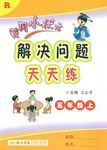题目内容
【题目】阅读下面短文,在空白处填入1个适当的单词或括号内单词的正确形式。
Today my daughter and I went to a parking lot 【1】 (sell) some of our eggs. It’s an 【2】 (extreme) cold day. As we pulled into the parking lot, there was a man 【3】 (sit) on the roadside, holding his bike, and he held up a paper plate on 【4】 he had written will work for food”.
He was still there as we left the parking lot, and I asked my daughter should we get him some food or some money?” and she said “yes, let’s”.
So I pulled up next 【5】 him, got out of the car, and gave him all my egg money. I still had another dozen 【6】 (egg) in the car, so I asked if he wanted them, 【7】 unexpectedly, he said no. He still had half a dozen and he didn’t want 【8】 (donate) from others more than he needed.
I felt 【9】 (freeze) through and through just standing there talking with him for a minute, and he must be sitting there for hours. I’m glad we 【10】 (stop), I’m glad I got out of the car and talked with him for a minute. I hope he has a warm place to sleep tonight.
【答案】
【1】to sell
【2】extremely
【3】sitting
【4】which
【5】to
【6】eggs
【7】but
【8】donation(s)
【9】frozen/freezing
【10】stopped
【解析】
这是一篇记叙文。作者讲述了和女儿去一个停车场卖鸡蛋,在停车场看见一个坐在路边的人,作者和女儿拿出了所有的鸡蛋钱帮助了他。
【1】考查非谓语动词。句意:今天我和女儿去停车场卖鸡蛋。此处要用动词不定式作目的状语。故填to sell。
【2】考查副词。句意:今天非常冷。此处extreme要修饰形容词cold,故用其副词形式。extremely非常,极端地,副词。故填extremely。
【3】考查非谓语动词。句意:当我们把车开进停车场时,有一个人坐在路边。sitting是动词-ing形式,此处用作后置定语,修饰man。故填sitting。
【4】考查定语从句关系词。句意:手里拿着一个纸盘子,上面写着“愿意为食物工作”。本句的一个限定性定语从句,此处所填关系词前有介词,which指代前面的paper,指物,作介词on的宾语。故填which。
【5】考查固定搭配。句意:于是我把车停在他旁边,下了车,把我所有的鸡蛋钱都给了他。此处是固定搭配next to(在......旁边)。故填to。
【6】考查名词单复数。句意:其前面有another dozen修饰,此处应该用名词egg的复数eggs。故填eggs。
【7】考查连词。句意:我车里还有一打鸡蛋。根据上下文句意,所以我问他要不要,但没想到,他拒绝了。且设空处后有unexpectedly出人意料地,可知,此处应是转折关系,需用but。故填but。
【8】考查名词。句意:他还有半打,他不想从别人那里得到超过他需要的捐赠。此处donation是名词形式,用作want的宾语。在句中表示来自他人的捐赠品,单数和复数均符合语境。故填donation(s)。
【9】考查非谓语动词。句意:我和他站在那里谈了一分钟,觉得整个人都僵住了,他一定坐了好几个小时了。feel感觉,系动词,其后用形容词。且此处不强调与人的主被动关系,frozen被冻僵的;freezing感到寒冷的均符合语境。故填frozen / freezing。
【10】考查时态。句意:我很高兴我们停下来了。此处stop是指之前作者正准备走时,看到这个人还在那里而停下来和他说话,所以用过去时态。stop停下,动词原形;stopped过去式。故填stopped。
第1小题考查了非谓语动词to do不定式表示目的的用法。不定式to do可以表示目的和将来之意。如:
1.I have something important to tell you..
2.I have a room to live in.
3.He has the ability to solve the problem by himself.

 黄冈小状元解决问题天天练系列答案
黄冈小状元解决问题天天练系列答案 三点一测快乐周计划系列答案
三点一测快乐周计划系列答案